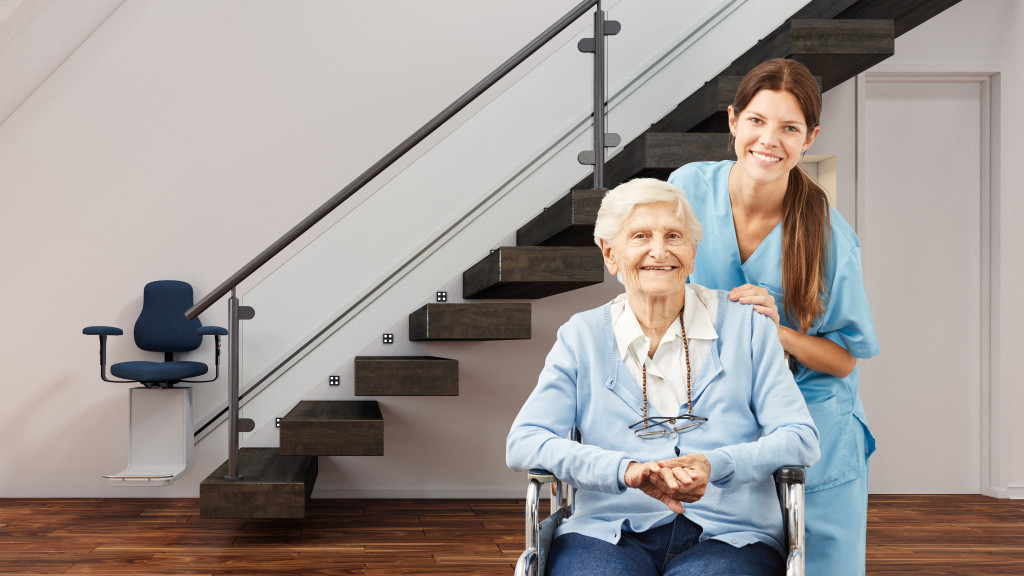Deciding to put your beloved elderly in a nursing home can be a tough thing to do. Especially given that they loved and cared for you all your young life. But never fear. You still have an option of hiring an in-home nurse for them, which can more likely be better for them. This way, Nana and Grandpa would stay in the comforts of their home. What’s more to their liking is it would be easier for their children and grandchildren to visit them.
Before your final decision, you must still choose which kind of in-home care your elderly need.
Types of In-Home Care
1. Personal Care and Companionship
If your senior is just in need of companionship, this is the choice you can take. In this type of home care, the carer will assist them with their daily routine. Such as bathing, meal preparation, light housekeeping, and other household tasks that are easy to handle. If they engage in some hobbies, the caretaker will assist them in that as well. This care service also ensures safety for those with dementia. The carer will keep them on their regular medication and appointments.
2. Private Nursing Care
Also known as shift nursing or hourly nursing, this is for the elderly who are less independent because of their chronic illness, injury, or disability. The nurse will attend to their daily medical needs, such as checking their vital signs and administering their daily medication and regular appointments with their assigned physician. Others might need a ventilator, tracheostomy, gastrostomy, catheter, or feeding tube care. These services will be provided if needed.
3. Home Health Care
This type of home-based care is for those who are in need of therapy, as directed by their doctor. It is designed to facilitate a patient for their prevention or recovery from an illness.
How is In-Home Care Different from A Nursing Home?

Firstly, home-based care costs less since the nurses work for a limited time every day and the patient only stays at home. In nursing homes or assisted living facilities, seniors will be living in a facility and are cared for 24/7. Daily routines and activities are much more fun and interactive, and less lonely for our cherished elderly. These homes can also be their second home since it is also comfortable and can help them maintain their independence.
It really depends on the patient’s needs. Caregiving services can be paid through insurance or senior citizens’ benefits, so you’re free to choose whichever you and your elderly prefer. Either way, they will be given a daily routine and everything else they need.
Why Do Seniors Need A Daily Routine?
Whatever one’s age, it is more beneficial to have a regular daily routine. Generally, people can’t help but worry about the uncertainty. It can affect their sleep quality, physical and cognitive abilities, and overall performance. Stress and anxiety are their worst enemies.
For that reason, is it rather a necessity for seniors to have a regular daily routine since they are much more prone to weakened overall abilities, which can be bad for them. More to that, it can also help caregivers.
In this case, everyone acknowledges what to expect and attends to regular activities. Therefore, reducing stress and insecurity.
It is important for our elderly to become less stressed and less anxious. Especially those who are suffering from Alzheimer’s disease or stroke. Feeling stressed can impair their physical and cognitive impairment further.
Moreover, insomnia is one of anxiety and depression’s common symptoms. A study from years ago discovered that going through and maintaining a regular daily routine helps seniors sleep better. It is way better and safer than prescribing them drugs just to be able to sleep.
Knowing what happens, or who assists them, or what activity to do helps them reduce stress because familiarity calms them down. Plus it will make them feel secure since they’re already aware of what’s happening around them.
Even someone with dementia might not be fully aware of their surroundings, practicing a regular routine will also make them feel safe and secure.
Whether you choose an assisted living or in-home care for your dear elderly, both are, although difficult, good choices. What’s more important is for you to know everything they need. If you chose home-based care, you can decide which helper you will hire and how much help you will need. For assisted living or nursing homes, it’s your choice to pick a place where the senior can be taken proper care of and have fun at the same time.

